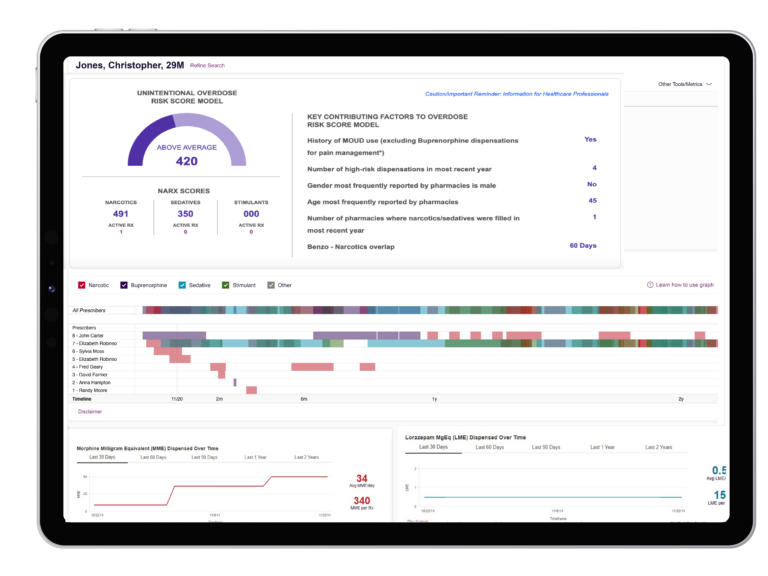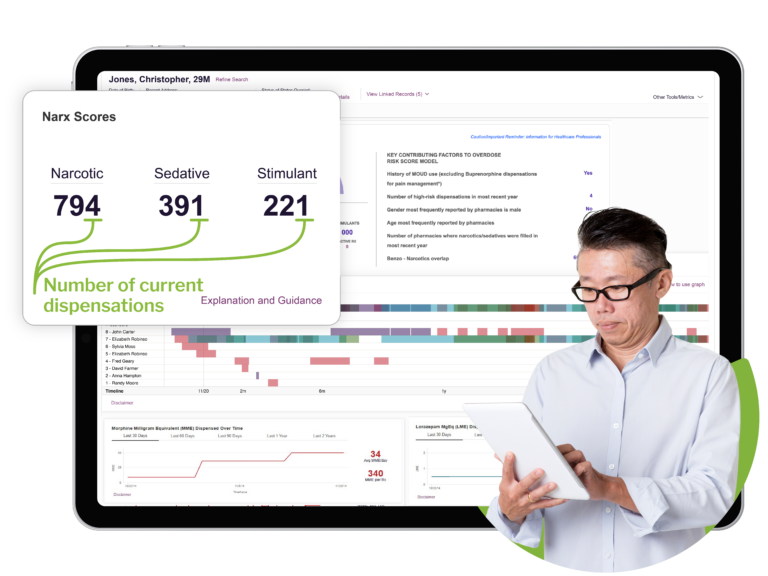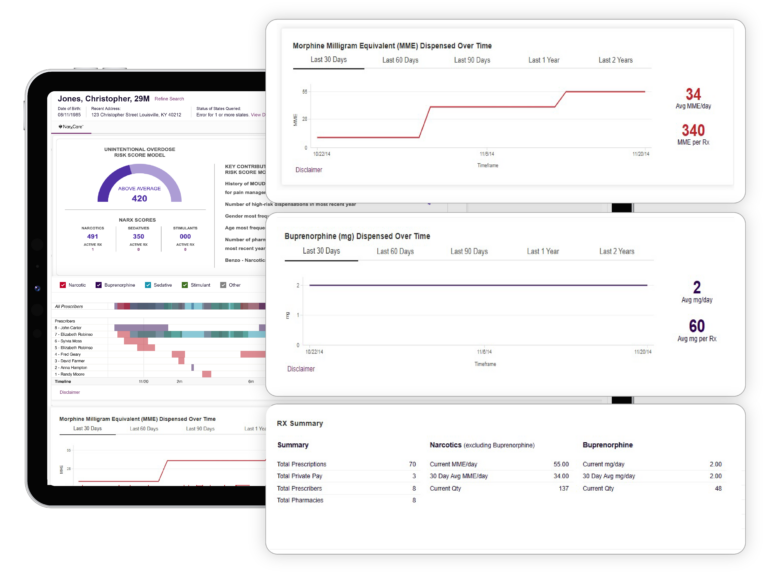
NarxCare®
PDMP Analytics
The NarxCare platform comprises a set of data and tools delivered within tiles that are intended to support a healthcare provider’s review of a patient’s controlled substance data from government-managed and regulated Prescription Drug Monitoring Programs (PDMPs).

Make More Informed Prescribing Decisions
Every state operates a PDMP to track controlled substance prescriptions and aggregate longitudinal data. While these PDMPs provide a wealth of information on drug usage, accessing their databases can be time-consuming and difficult to understand at a glance.
NarxCare helps clinicians visualize PDMP data with real time intelligence and decision support integrated directly within clinical workflows.
Key Benefits

Optimize Care Coordination
User-friendly platform makes complex dispensing data easy-to-understand and share with care team members, fostering an informed and coordinated approach to care.

Ease Provider Burden
With decision support delivered directly into existing point-of-care systems and clinical workflows, prescribers and dispensers can save valuable time accessing PDMP data and focusing additional time on what matters most – patients.

Improve Patient Outcomes
Real-time intelligence helps providers identify potential risk factors and helps them to make more informed clinical decisions, with the goal of improving care outcomes.

Our Impact
Bamboo Health provides real-time intelligence and clinical decision support to help clinicians and pharmacists make more informed prescribing and dispensing decisions and spend more time with patients, with the goal of improving health outcomes.
Learn More-
106M+
controlled substance insights delivered into EHR and pharmacy management systems per month
-
1M+
providers accessing government managed and regulated PDMP
information in clinical workflows
Get in Touch
Speak with Us
Tell us all about your organization’s care coordination and care intelligence needs.
Speak with Us
Schedule a Demo
See how our technologies deliver critical patient information in real-time and in clinical workflows.
Schedule a Demo
View Our Resources
Read more about our customers’ successes and how we’re working to improve public health.
View Our Resources
NarxCare is an application that provides a set of data, visualizations and analytics to support prescribers’ and dispensers’ review of controlled substance data from government managed and regulated Prescription Drug Monitoring Programs (PDMPs). NarxCare is intended to aid, not replace, medical decision making. None of the information presented in NarxCare should be used as sole justification for providing or not providing medications.